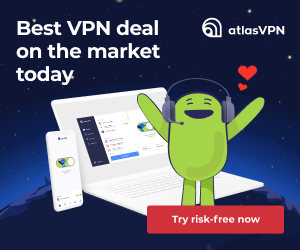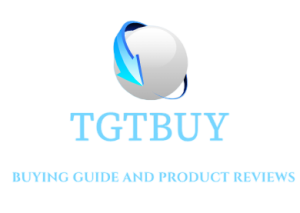Online learning has changed how people gain new skills. Coursera leads this change with high-quality courses from top schools and companies. Founded in 2012 by Stanford professors, it brings education to millions worldwide.

The platform partners with over 300 universities and businesses. You can find programs in tech, business, healthcare, and more. Whether you want a single course or a full degree, Coursera makes learning flexible.
Since 2020, demand for online education has grown fast. Coursera’s wide range of options helps learners at every level. With certificates and degrees available, it’s a smart choice for career growth.
Key Takeaways
- Founded by Stanford professors in 2012
- Works with 300+ top universities and companies
- Offers 7,000+ courses across many fields
- Provides certificates and full degrees
- Helps learners worldwide improve their skills
What Is Coursera?
Innovative platforms bridge the gap between universities and learners worldwide. This platform operates as a managed marketplace, sharing revenue with academic partners. Degree programs split earnings 60/40, while certificates share 50% with institutions.
Its hybrid model mixes free courses, paid certificates, and subscriptions like Coursera Plus. Over 90% of certificate programs offer financial aid, making education affordable. Companies like L’Oréal use business plans to train employees at scale.
As a certified B Corporation, it prioritizes social impact alongside profits. The team spans 32 global hubs, with flexible remote work policies. During COVID-19, it provided free pandemic-related courses to support communities.
The mobile app enhances accessibility with subtitles in 10+ languages. Despite a $117 million net loss in 2023, revenue hit $636 million, showing strong growth. This balance of innovation and responsibility defines its unique approach.
Courses Offered on Coursera
Education has evolved beyond traditional classrooms, offering diverse learning paths. The platform hosts thousands of programs, from tech to arts, designed for all skill levels. Whether you prefer quick projects or deep dives, there’s a format to match your goals.
Popular Course Categories
Top fields include Data Science, Business, and Healthcare. Each category combines video lectures, quizzes, and real-world projects. For example:
- Data Science: Python, machine learning, and SQL courses.
- Business: Marketing, finance, and leadership programs.
- Healthcare: Public health certifications and medical AI.
Flexible Learning Formats
Choose between on-demand or scheduled classes. Most courses run 4–12 weeks, with 1–2 hours of weekly videos. Shorter options like Guided Projects (2–3 hours) teach hands-on skills.
| Format | Duration | Features |
|---|---|---|
| On-Demand | Self-paced | Start anytime, 7-day free trial |
| Scheduled | Fixed timeline | Peer discussions, deadlines |
The mobile app supports offline viewing and audio-only mode. For coding practice, Coursera Labs provides cloud-based tools. Subscriptions include a 30-day refund policy, and some courses offer academic credit.
Earn Accredited Degrees Online
Top universities now offer fully accredited degrees through digital platforms. Over 40 programs are available, from business to tech, designed for working professionals. The University of Illinois’ iMBA and a Master of Computer Science in Data Science ($21,000) stand out as top choices.

Bachelor’s programs like the BS in Marketing provide foundational skills. Master’s options, such as the University of London’s MSc in Cyber Security, cost 60% less than on-campus alternatives. Many students start with free courses before committing.
Key Features
- Affordable: Save thousands compared to traditional tuition.
- Flexible: Study while working, with deadlines tailored to your schedule.
- Recognized: Credits often transfer between partner institutions.
The application process requires undergraduate transcripts but no entrance exams. Alumni have landed roles at Google and IBM, proving these degrees hold weight in tech careers.
Professional Certificates for Career Growth
Career advancement now hinges on verifiable skills, not just degrees. Platforms like this offer industry-backed certificates that employers value. Google even equates some credentials to four-year degrees.

High-demand programs include Meta’s Social Media Marketing Certificate and IBM’s Data Science Professional Certificate. Graduates report an 82% career boost within six months. These programs combine hands-on projects with expert feedback.
Fortune 500 companies recognize credentials in UX Design and Project Management. The Salesforce Sales Operations Certificate opens doors in tech business roles. Prep courses for CompTIA certifications add further flexibility.
Alumni networks and job-search tools help learners transition smoothly. Whether pivoting careers or aiming for a promotion, these certificates deliver tangible results.
Pricing and Fees
Budget-friendly options make online education accessible to everyone. Whether you want free courses or premium degrees, flexible plans fit all needs.
Free vs. Paid Options
Over 2,000 courses are free to audit. Paid upgrades unlock certificates and graded assignments. Key differences:
- Free: Access lectures and readings only.
- Paid ($49–$99): Earn certificates and submit projects.
- MasterTrack: Split master’s degrees into affordable modules ($2,000–$5,000 each).
Subscription Models and Financial Aid
Coursera Plus offers unlimited access for $399/year—ideal for frequent learners. Teams plans start at $400/user annually for businesses.
Degree programs cost $15,000–$45,000 total, but payment plans spread costs. Financial aid covers 90% of certificate seekers. Partners like Google and IBM often sponsor employee training.
Key perks:
- 14-day refund policy for subscriptions.
- Corporate discounts for bulk enrollments.
- Scholarships for high-demand tech certificates.
Conclusion
Professionals now upgrade skills without pausing their careers. This platform leads the shift with accredited degrees, business certifications, and self-paced courses. Its 33% revenue growth reflects trusted quality.
Start with free courses to test flexibility. The mobile app lets you learn anywhere—download lectures for offline use. Whether you aim to master data science or switch industries, the tools are ready.
Take the next step today. Explore courses that fit your goals and schedule. Your future skills are just a click away.




